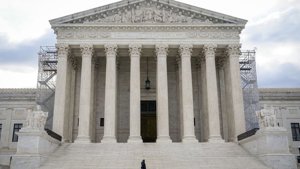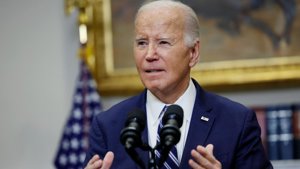
Barrett, Jackson Spar in Supreme Court Injunction Ruling
Barrett rebukes Jackson’s “imperial judiciary” stance as Supreme Court curtails nationwide injunctions in Trump-era legal dispute.
Barrett, Jackson, and the Battle Over Judicial Power
In a heated conclusion to the Supreme Court term, Justices Amy Coney Barrett and Ketanji Brown Jackson exchanged sharp critiques over the scope of judicial authority. The decision addressed a Trump administration emergency request to halt the use of nationwide injunctions—court orders that block federal policies for everyone, not just the parties in a lawsuit—including those placed on President Donald Trump’s birthright citizenship executive order.
Justice Barrett, appointed by Trump, authored the majority opinion, which held that federal judges overstep when they issue injunctions that extend beyond the parties involved in a case. Barrett dismissed Jackson’s dissent as “rhetoric” and said it ran counter to “more than two centuries’ worth of precedent, not to mention the Constitution itself.” She wrote, “We will not dwell on Justice Jackson’s argument… Justice Jackson decries an imperial Executive while embracing an imperial Judiciary.”
The decision stops short of banning all forms of broad relief, however. Barrett pointed out that plaintiffs can still pursue class action or statewide lawsuits, which remain available avenues for challenging federal policies in court.
Dissenting Views and Ongoing Legal Uncertainty
Justice Jackson, in dissent, argued that courts must retain the ability to issue nationwide injunctions in order to stop the executive branch from violating the Constitution. Barrett rejected this, stating Jackson’s position lacked foundation in legal doctrine and would elevate judicial authority beyond its intended limits. “She offers a vision of the judicial role that would make even the most ardent defender of judicial supremacy blush,” Barrett asserted.
Justice Sonia Sotomayor offered her own dissent, accusing the Supreme Court of being “complicit” by allowing the Trump administration to claim a legal victory without a substantive ruling on birthright citizenship. Sotomayor noted that lower courts had consistently blocked Trump’s order, and suggested Trump strategically framed the dispute to avoid direct scrutiny of his policy’s constitutionality, instead focusing the court’s attention on the procedural question of nationwide injunctions.
Trump’s contested birthright citizenship order, if implemented, would end automatic citizenship for babies born in the United States to non-citizen parents, overturning a 150-year-old interpretation of the 14th Amendment. While the Supreme Court’s decision restricts nationwide injunctions, it leaves open other legal strategies for challenging such executive actions in federal courts, signaling that future high-profile disputes over presidential authority are likely to persist.






